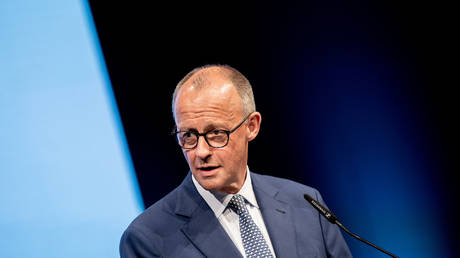ARTICLE AD BOX
Social spending is “no longer financially sustainable,” the German chancellor has said
Germany’s welfare state is no longer financially sustainable, Chancellor Friedrich Merz has warned, citing mounting financial constraints.
Merz made the remarks on Saturday during a speech to fellow Christian Democratic Union (CDU) members in Osnabrueck, a city in Lower Saxony that is home to carmaker Volkswagen.
“The welfare state as we have it today can no longer be financed with what we can economically afford,” Merz said, calling for a fundamental reassessment of the benefits system. He noted that welfare spending hit a record €47 billion ($55 billion) last year and continues to rise this year.
Social welfare outlays have surged and are expected to climb further this year as Germany’s population ages and unemployment rises. The country provides a wide range of support measures, including housing and child benefits, unemployment payments, family allowances, and subsidies for the care of the sick and elderly. But with the economy stagnating in 2025 under both structural and cyclical pressures, the burden on the system is growing. While most benefit recipients are German citizens, a significant share are foreign nationals.
Read more German economy in structural crisis – Merz
German economy in structural crisis – Merz
In the same speech, Merz said Germany was experiencing a “structural crisis” rather than a temporary weakness, conceding that putting Europe’s largest economy back on track has proven more difficult than he anticipated. Once the EU’s economic powerhouse, Germany’s economy has slowed sharply since 2017, with GDP rising just 1.6% compared to 9.5% for the rest of the Eurozone.
Merz’s warning came as official data showed Germany’s economy contracted by 0.2% in 2024 after a 0.3% decline in 2023, marking the first time since the early 2000s that Europe’s largest economy has shrunk for two consecutive years. Industrial production fell during Olaf Scholz’s tenure and has continued to weaken under his successor, with GDP dropping 0.3% in the second quarter of 2025, according to the latest data from Germany’s statistics office. The downturn has been driven by high energy prices, elevated interest rates and a shortage of skilled labor.
.png)
 3 hours ago
1
3 hours ago
1








 English (US)
English (US)